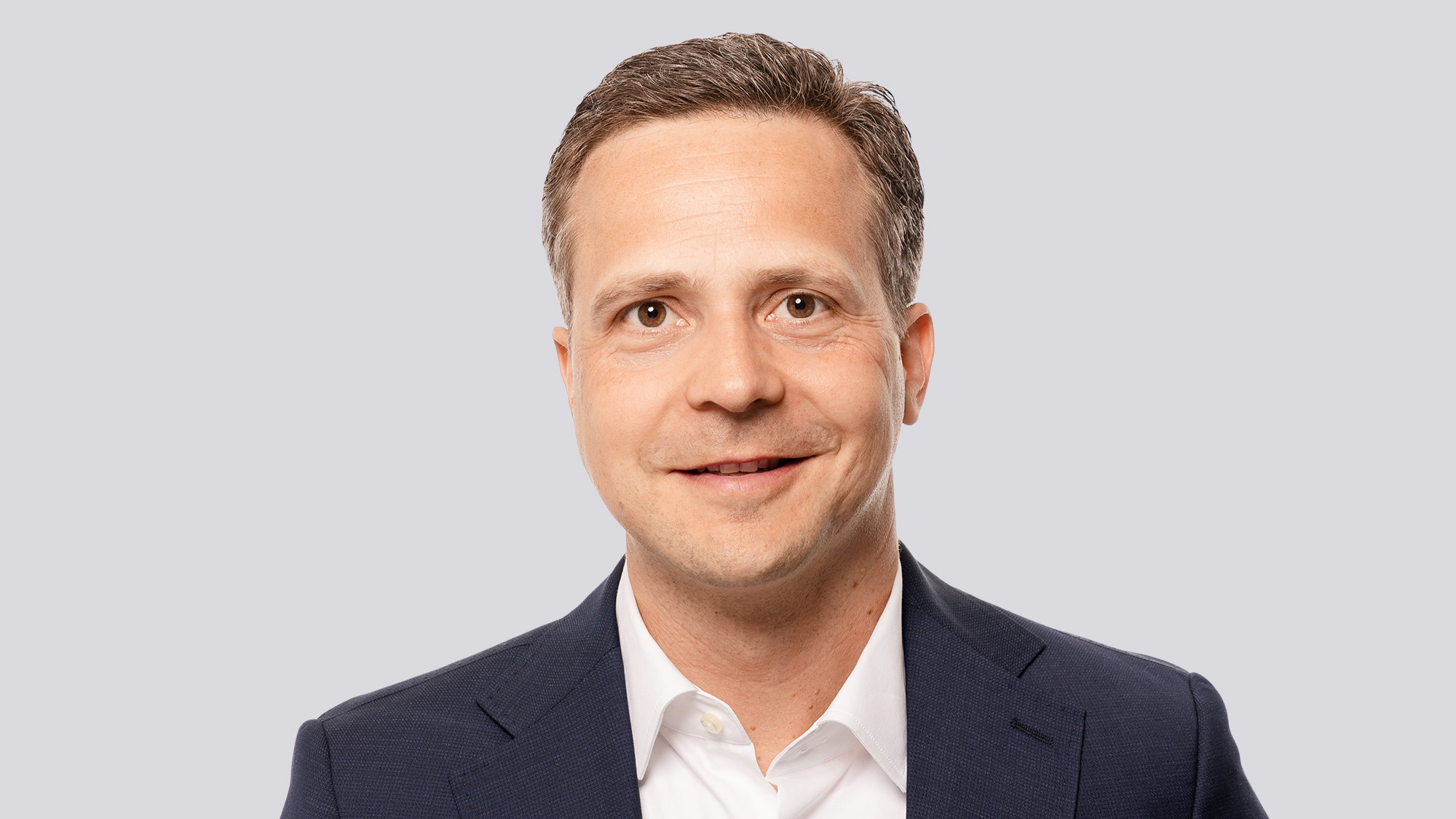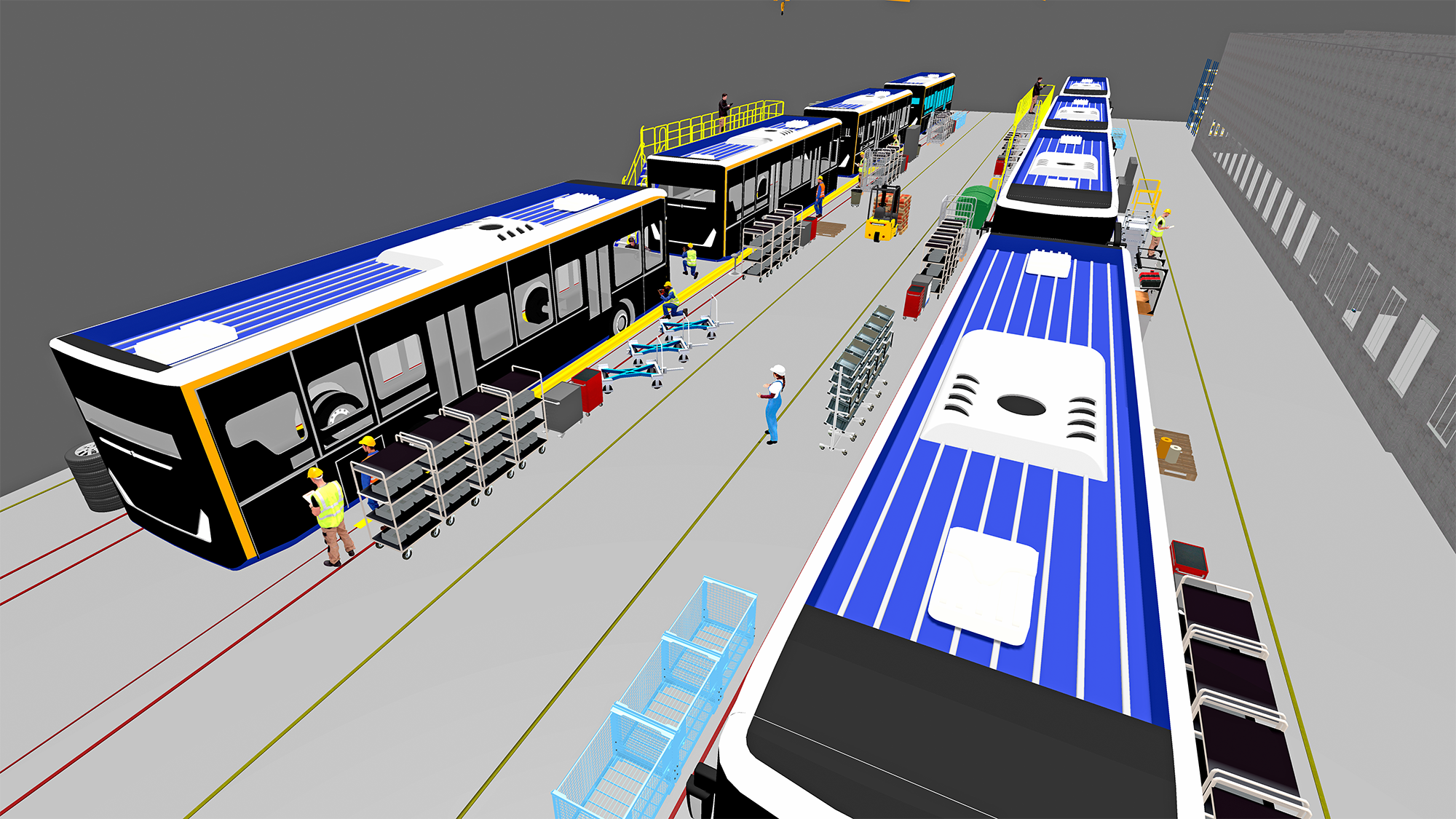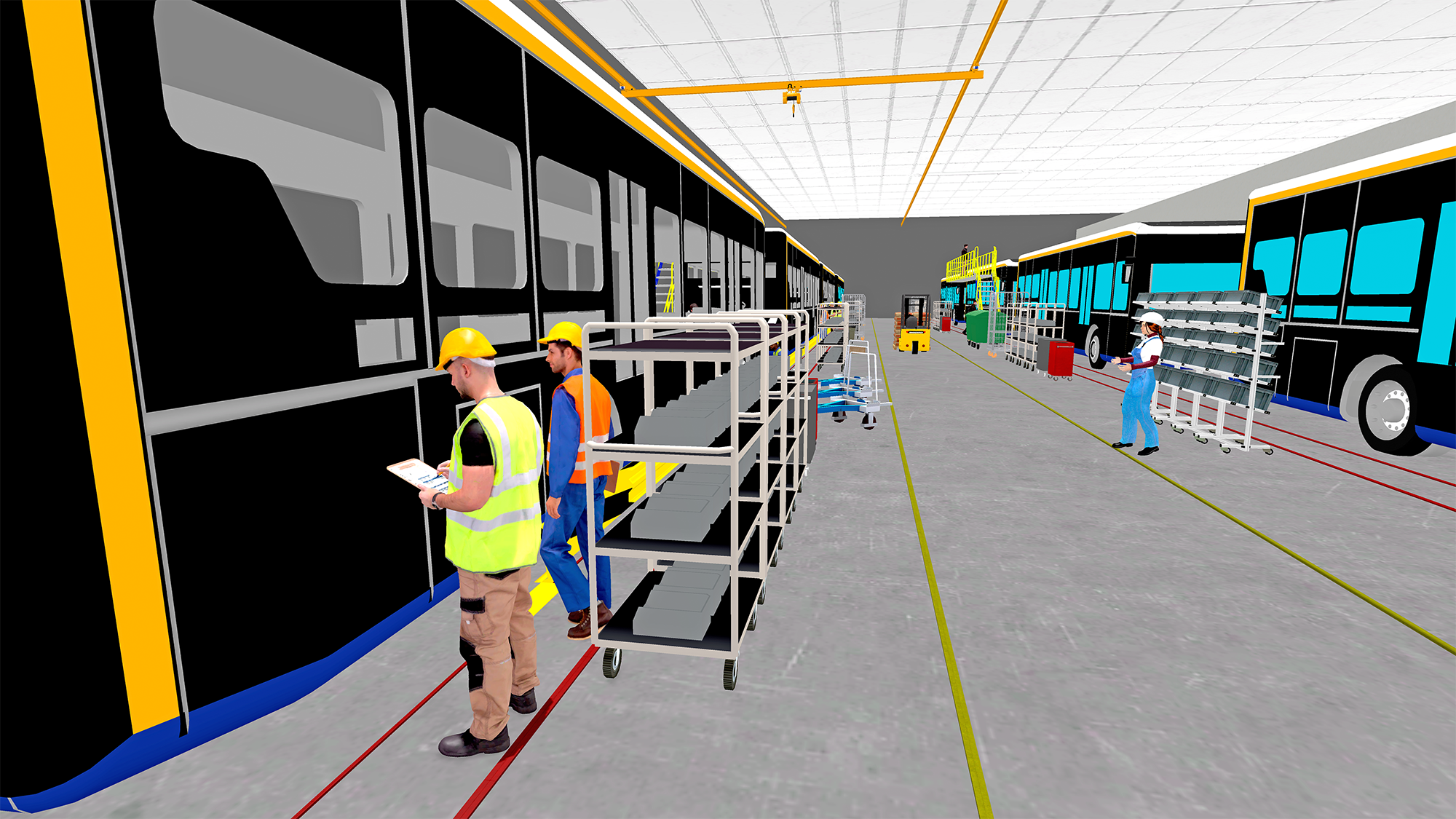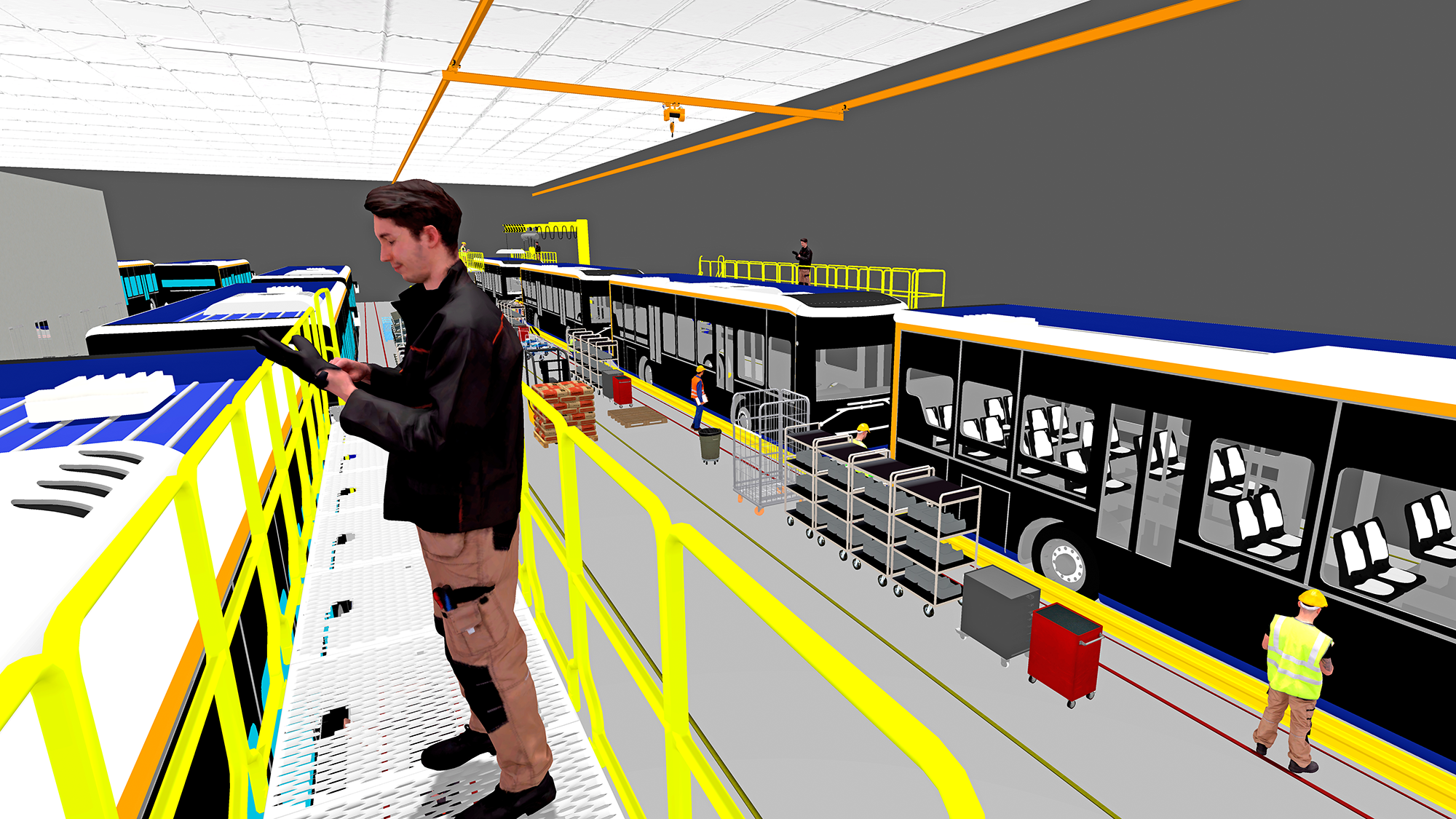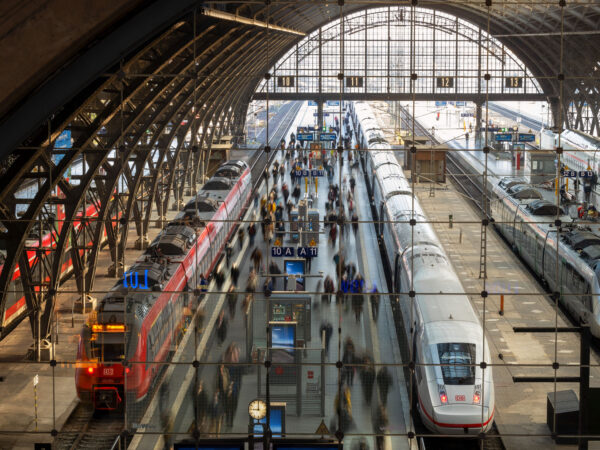New Culture in
the Bus Business
How the MAN bus plant in Ankara is generating a greater understanding of quality and costs.
06/2025
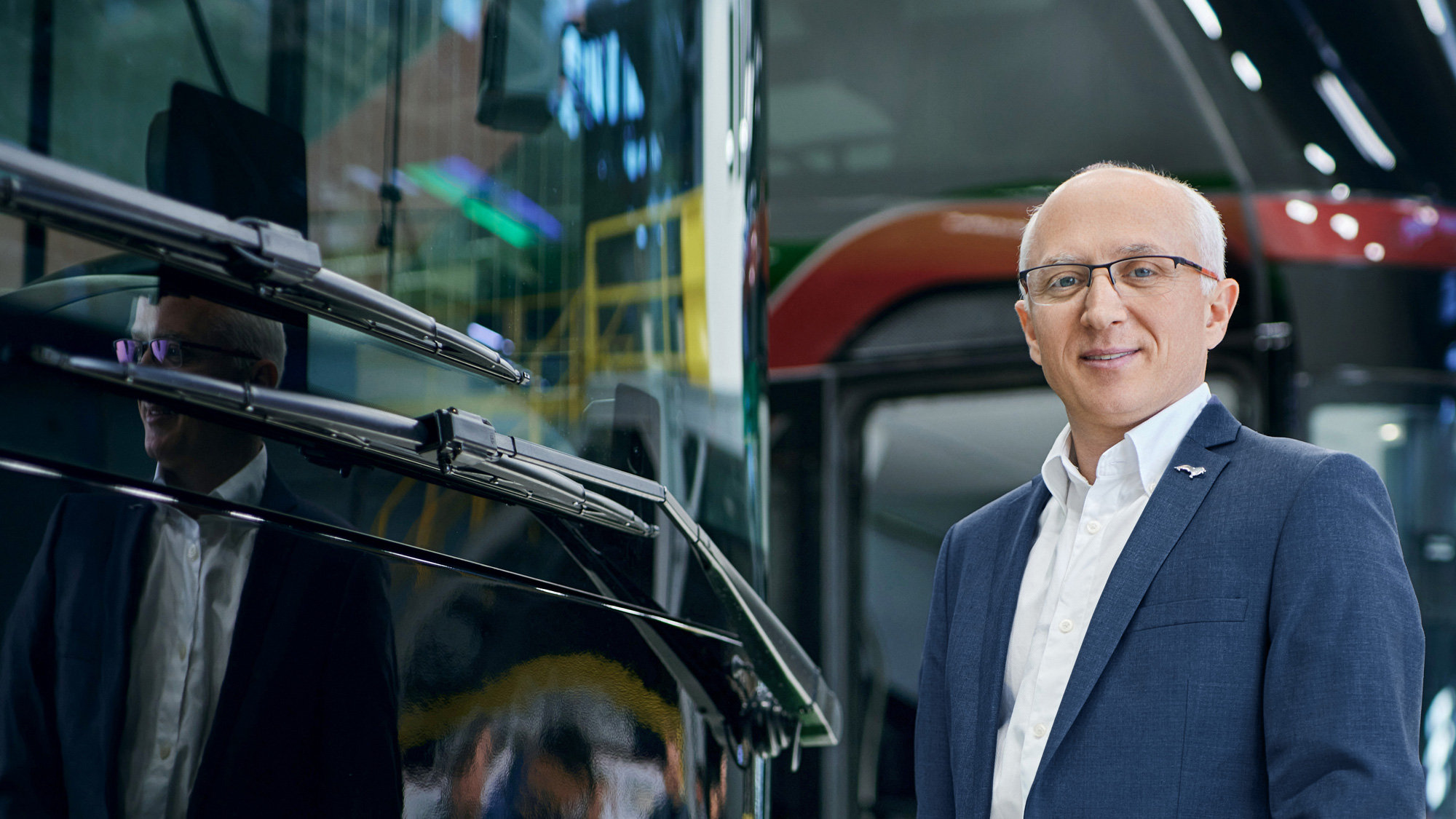
There is hardly a better place than the MAN plant in Ankara to get an idea of the future of bus transportation. In the Turkish capital, the commercial vehicle manufacturer from Munich, located in the south of Germany, not only produces city, intercity buses and coaches for the MAN and NEOPLAN brands – the company’s engineers are also developing the models of tomorrow and beyond in the adjoining Product Development Center. Production of all-electric buses will start in the middle of the year, followed by the first electric coach from a major European manufacturer. The transition to electric drives is just one of the major trends in the industry. Added to this is the growing number of digital assistance systems that will make bus transportation even safer and more comfortable in the future.
The MAN Lion’s City E city buses, which are successful throughout Europe, will shortly be rolling off the production line in Ankara, and a battery-electric coach – the MAN Lion’s Coach E – is due to be added to the range in 2026. This is why MAN has prepared production and employees in Ankara for the requirements of electromobility in recent months and gradually converted the site to eMobility. Bus and coach production is a highly complex process, as almost every vehicle is unique. “We almost only produce one-offs because our customers have very specific requirements in terms of equipment,” says Mehmet Sermet, CEO of MAN Türkiye A.Ş. For example, MAN in Ankara integrates different systems for ticket billing or the preferred Wi-Fi modules of the bus operators into the vehicles. In addition to the high expectations of their customers, there are also constantly new regulatory requirements, most recently the EU’s Cybersecurity Directive. It required changes to the hardware and software of the buses, which further increases the complexity of production in Ankara.
At Home in the Bus Business
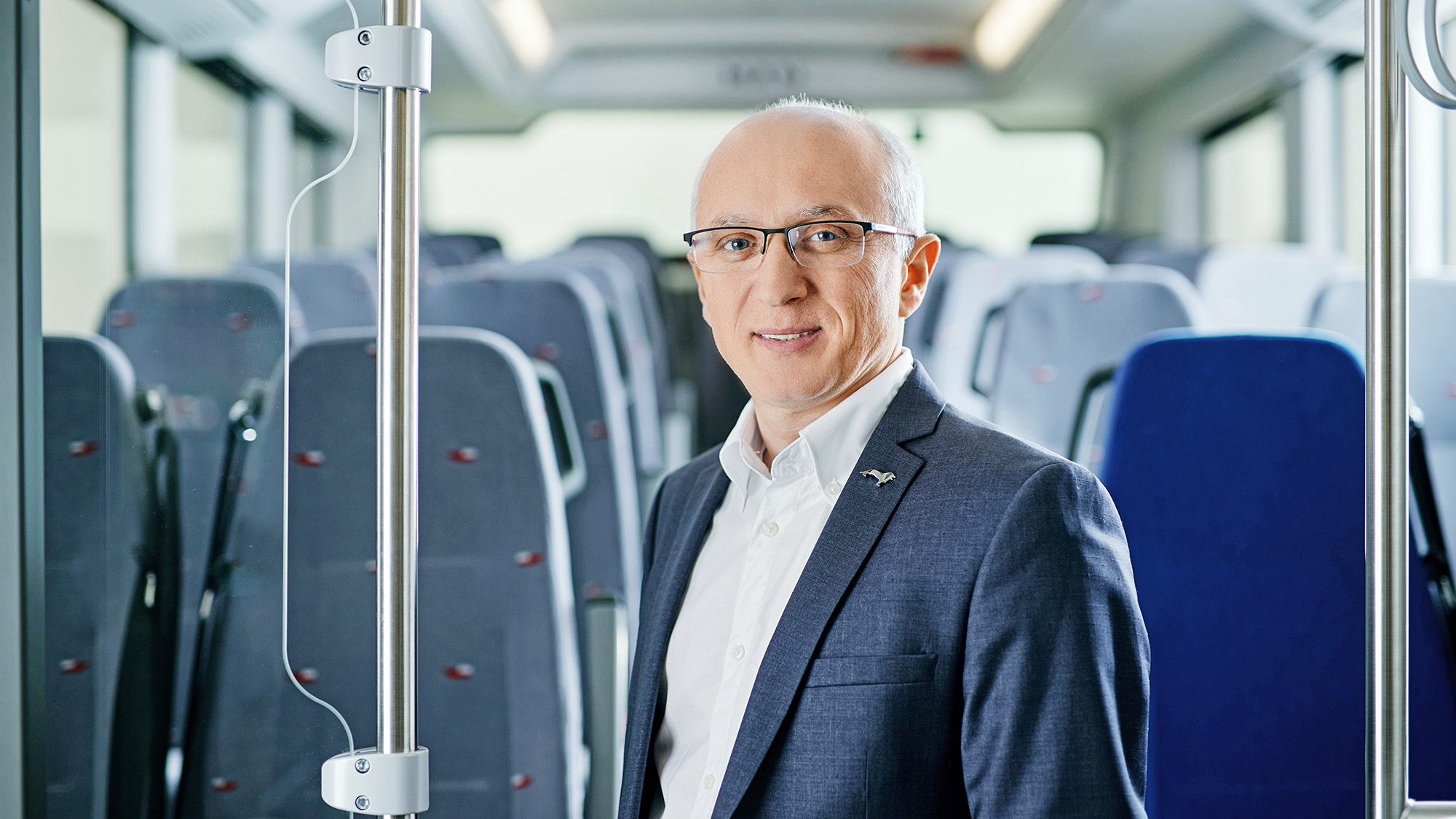
More cables, more electronics
A high degree of individualization and regulation, plus the growing number of additional electronic systems: These developments are also significantly changing the demands placed on employees in production. “In the past, gluing and welding were our core competencies,” says Sermet. “Now they are more in the areas of electrical engineering and electronics. We are in the middle of a transformation phase.” A simple numerical example shows the extent of the change: In the past five years alone, the total length of all cables in the buses has roughly tripled.
Despite this rapid transformation, MAN is committed to continuously improving the quality of its products and aligning with future standards in the bus industry. “This depends above all on the excellent work of our employees, as our vehicles are manufactured entirely by hand,” says Arkadiusz Kopiec, Head of Quality Bus at MAN. “The cycle times on the assembly line are around one hour, which is much longer than in passenger car production. During this time, our employees have to carry out a large number of different tasks – on buses between 10 and 18 meters long, each with its own individual equipment.”
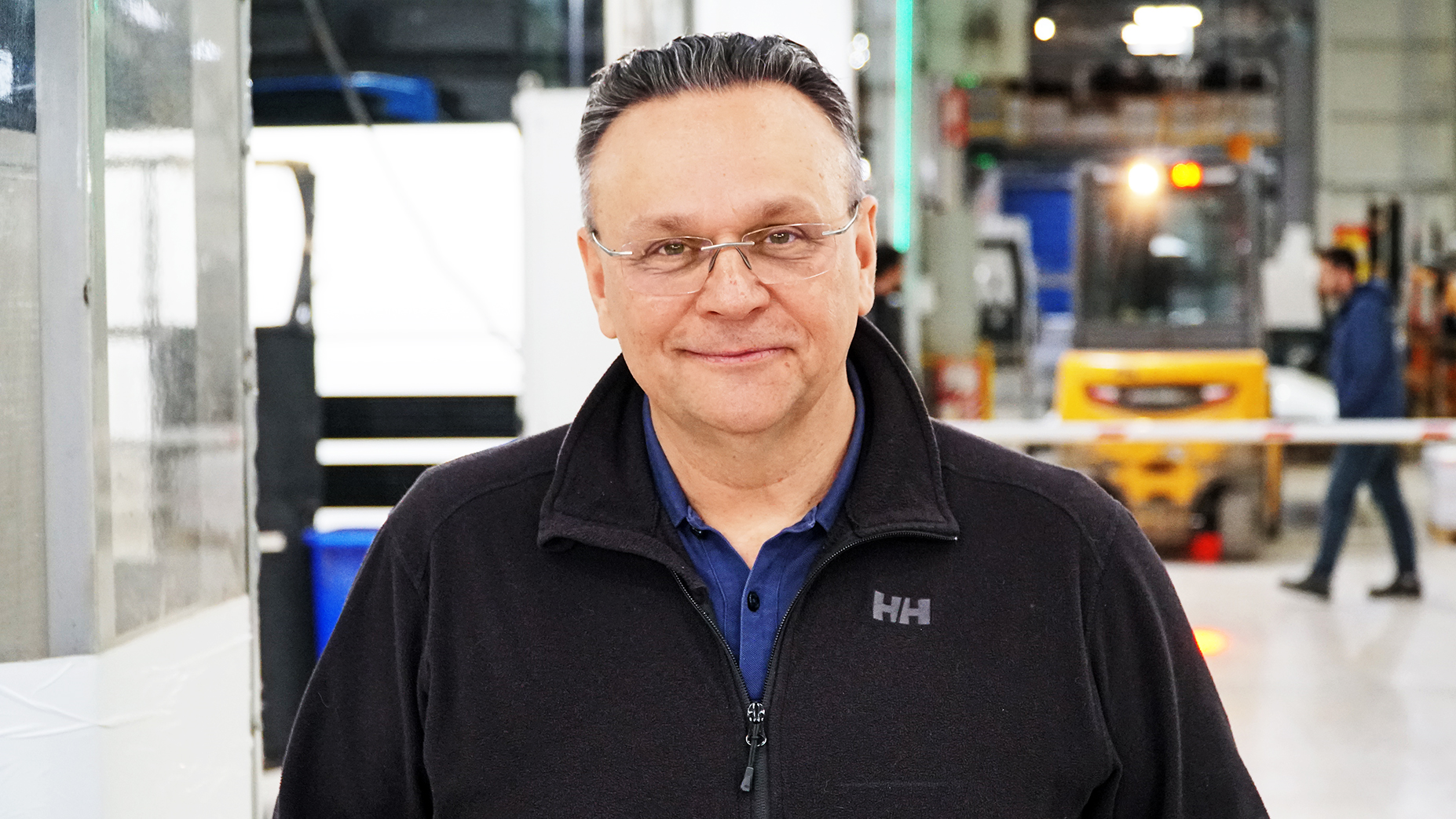
New approach on the production line
In addition to precise work preparation, this also requires a new approach to quality assurance. This was exactly the focus of a project carried out by MAN in Ankara together with Porsche Consulting. The aim was to further improve processes on the production line and thus reduce quality costs. “The central idea behind the project was a change in the quality culture: In the future, every employee should be responsible for completing the assigned tasks to a high standard and checking that their work is free of errors before passing it on to the next process step,” explains Oliver Stahl, Partner at Porsche Consulting.
At the start of the project, the consultant team analyzed the current data on the fault patterns, assigned repair times to them and thus drew conclusions about the resulting quality costs. Five areas with the greatest potential for optimization quickly emerged, including the conveyor section where the bus cabling is carried out. “Anomalies in quality were only registered a few stations later. Here they can often only be rectified at great expense because the affected areas of the bus are usually already covered up by then,” says Dr. Michael Bartholdt, Senior Manager at Porsche Consulting. A similar picture emerged at the four other sections of the conveyor belt that the consultants looked at.
"Everyone goes the extra mile"
By strengthening what is known as worker self-control on the assembly line, MAN is focusing on giving employees more responsibility in the quality process. Multipliers from production were initially sensitized to quality issues in training sessions, followed later by joint inspections with the consultants on the production line in order to identify specific problems on site and derive solutions. In the case of cable assembly, employees now carry out a direct visual inspection of the cable harnesses and check that plugs are correctly seated.
“One new feature is what is known as a boundary sample overview at the assembly station. Porsche Consulting has also listed the central do’s and don’ts in it. This facilitates self-control directly at the assembly station. Thanks to the cooperation between segment managers and plant management, we were able to implement such optimization approaches quickly and pragmatically directly in production,” says Bartholdt. “This created aha and wow effects for the team members and employees on the store floor. There was also an extremely positive momentum over the course of the project: Everyone went the extra mile to identify more and more potential cost savings and implement them on an ad hoc basis.”
The MAN plant in Ankara
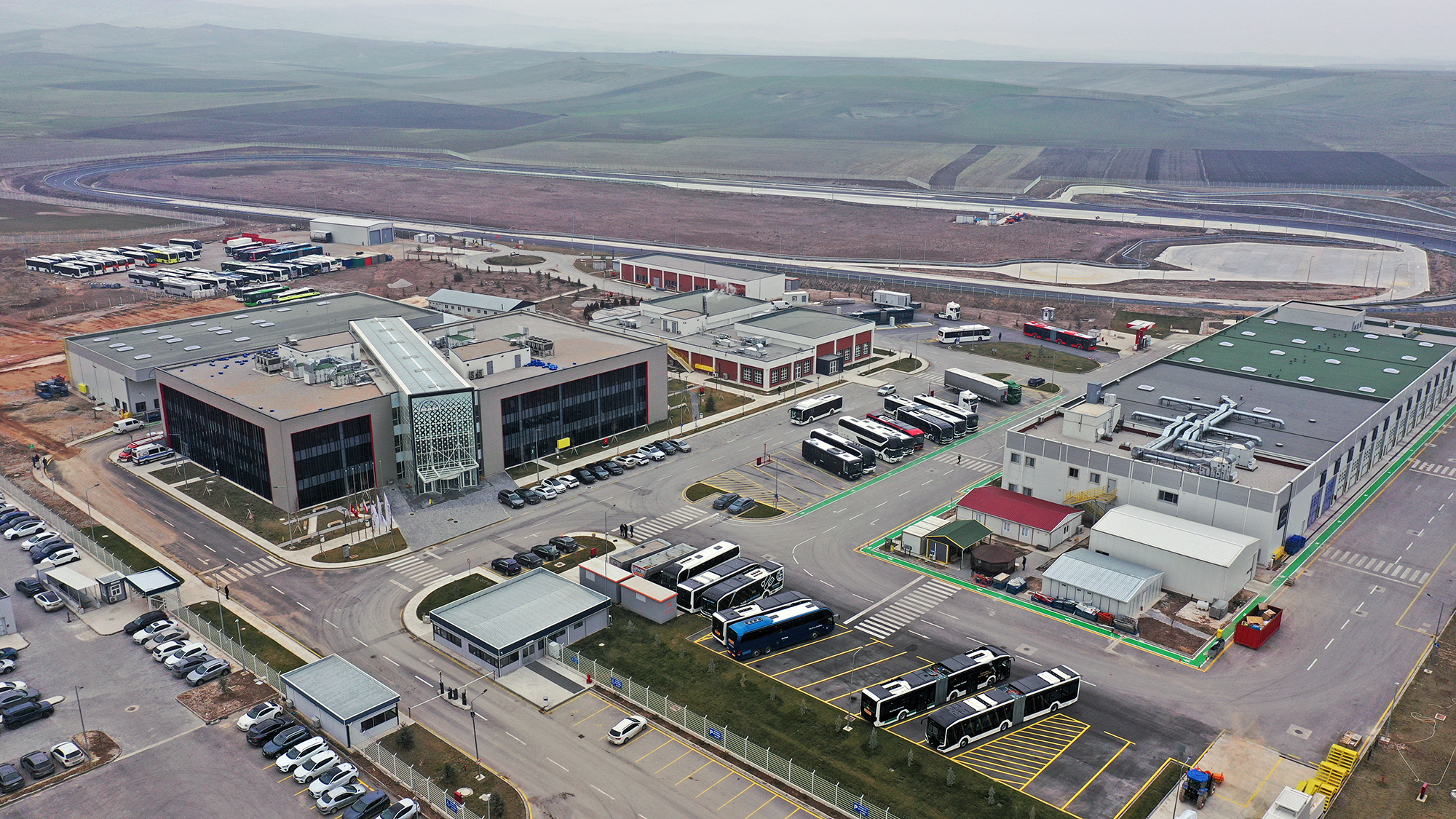
Anchoring the new quality culture
In the final project phase, the aim was to prove the effectiveness of worker self-control, quantify its success and anchor the new quality culture in everyday life. The quantification was carried out by determining the repair times and materials saved. After just a short time, errors were generally reduced by more than 95 percent. The costs for reworking the buses also decreased considerably. “The inspection volumes at the control points along the production line, referred to as quality gates, were also significantly reduced,” reports Bartholdt. “The reason for this was the systematic elimination of multiple inspections and the revision of the entry and exit criteria for each of the quality gates.” To permanently anchor the new quality culture, MAN adapted many standards and processes, which were also coordinated with the sister plant in Starachowice. This resulted in a double benefit: Quality costs in production are now also being further reduced there.
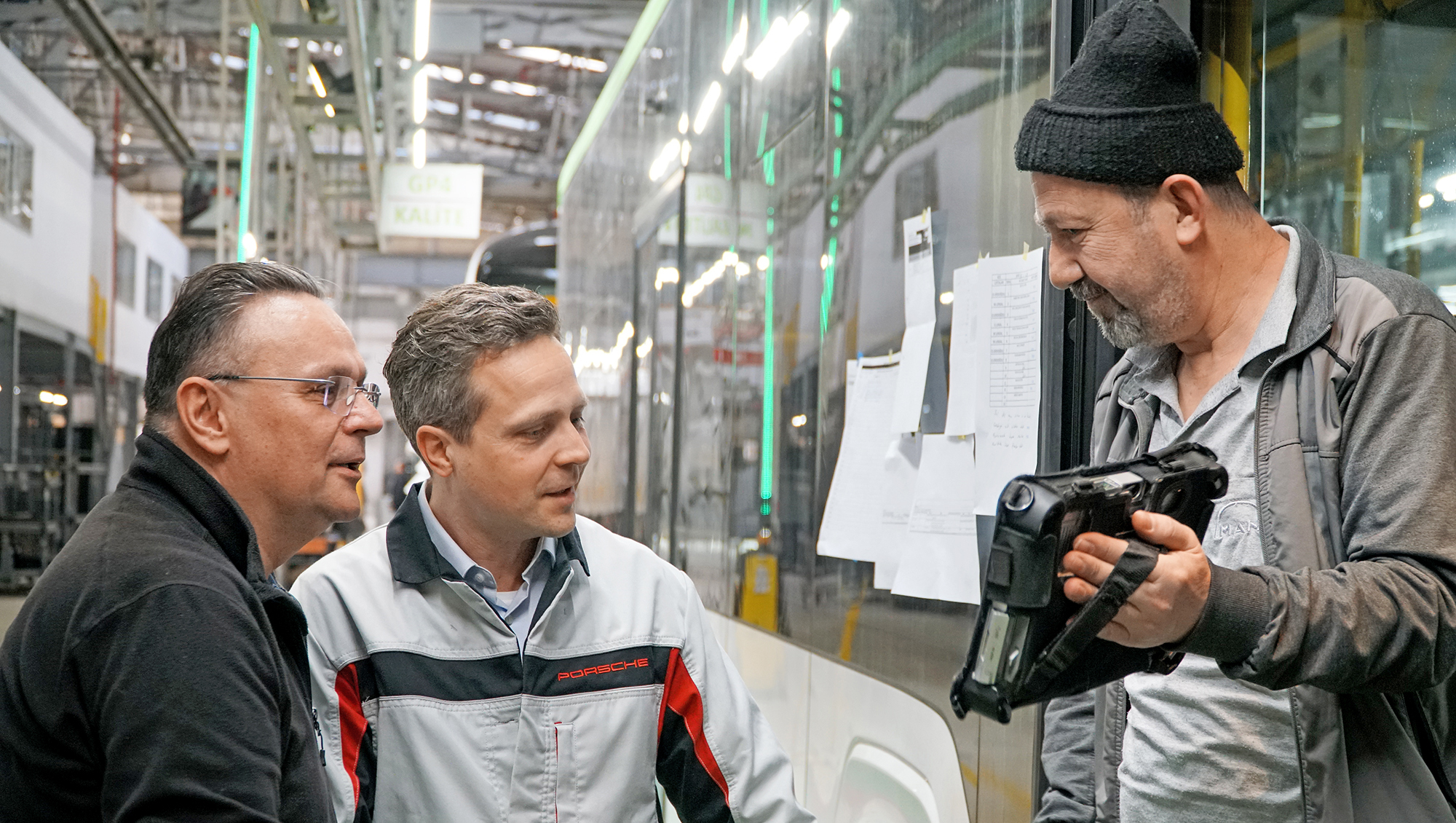
Since the changeover, it has been clearly defined for which error patterns worker self-controls is sufficient and where downstream checks by quality colleagues should no longer be necessary. And to ensure that nobody on the assembly line forgets their new role, MAN distributed a small folding mirror to all production employees, with the question “Who is responsible for quality?” printed on the outside. If you open it up, you can see yourself – which perfectly sums up the new role of the workers. “Every employee is now their own quality manager, so to speak,” says CEO Sermet.
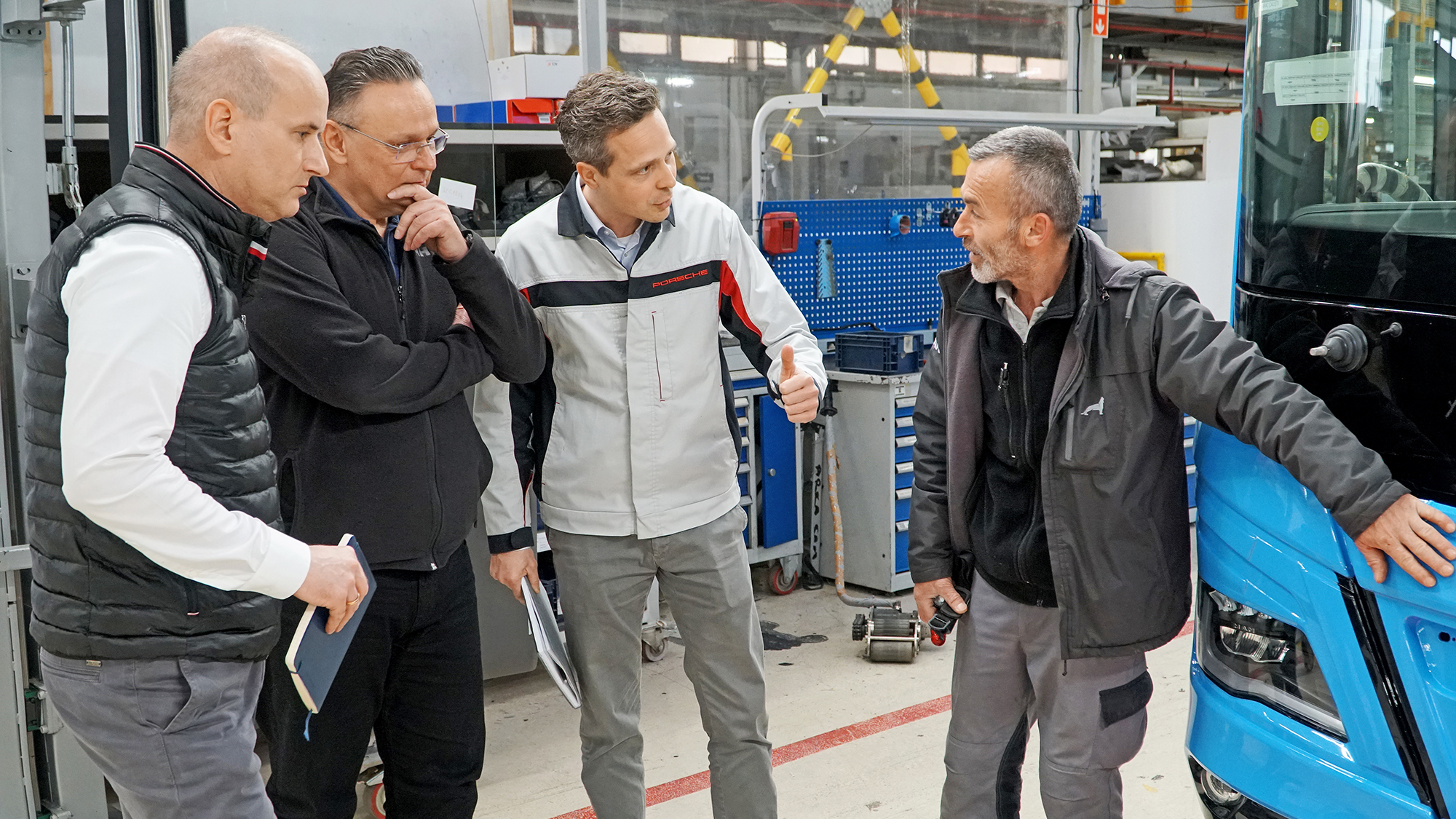
More transparency with virtual reality
Improving the quality processes restructured the tasks in the quality gates and reduced their number by around 50 percent. The aim of this streamlining was to make inspection points more effective and at the same time ensure the high level of quality in production. The Porsche Consulting team simulated the optimal arrangement of the quality gates using production planning software, optimized them step by step and made them visually tangible using virtual reality. An effort that paid off: The redesign of the quality gates alone means that twelve employees can now work in a more value-adding way.
In addition to worker self-control and the redesign of the quality gates, improved transparency in the error prevention processes also leads to higher quality. Before the start of the project, complaints were sometimes recorded on paper and sometimes in many different chat groups. This resulted in a lack of commitment and structure. The experts from Porsche Consulting therefore suggested that all quality problems should be consistently recorded in a central IT system – regardless of whether they arise during internal audits, in workshops or with customers. In addition, tablets were increasingly used in production and the digital data recorded with them was used even more. This significantly accelerated feedback to production.
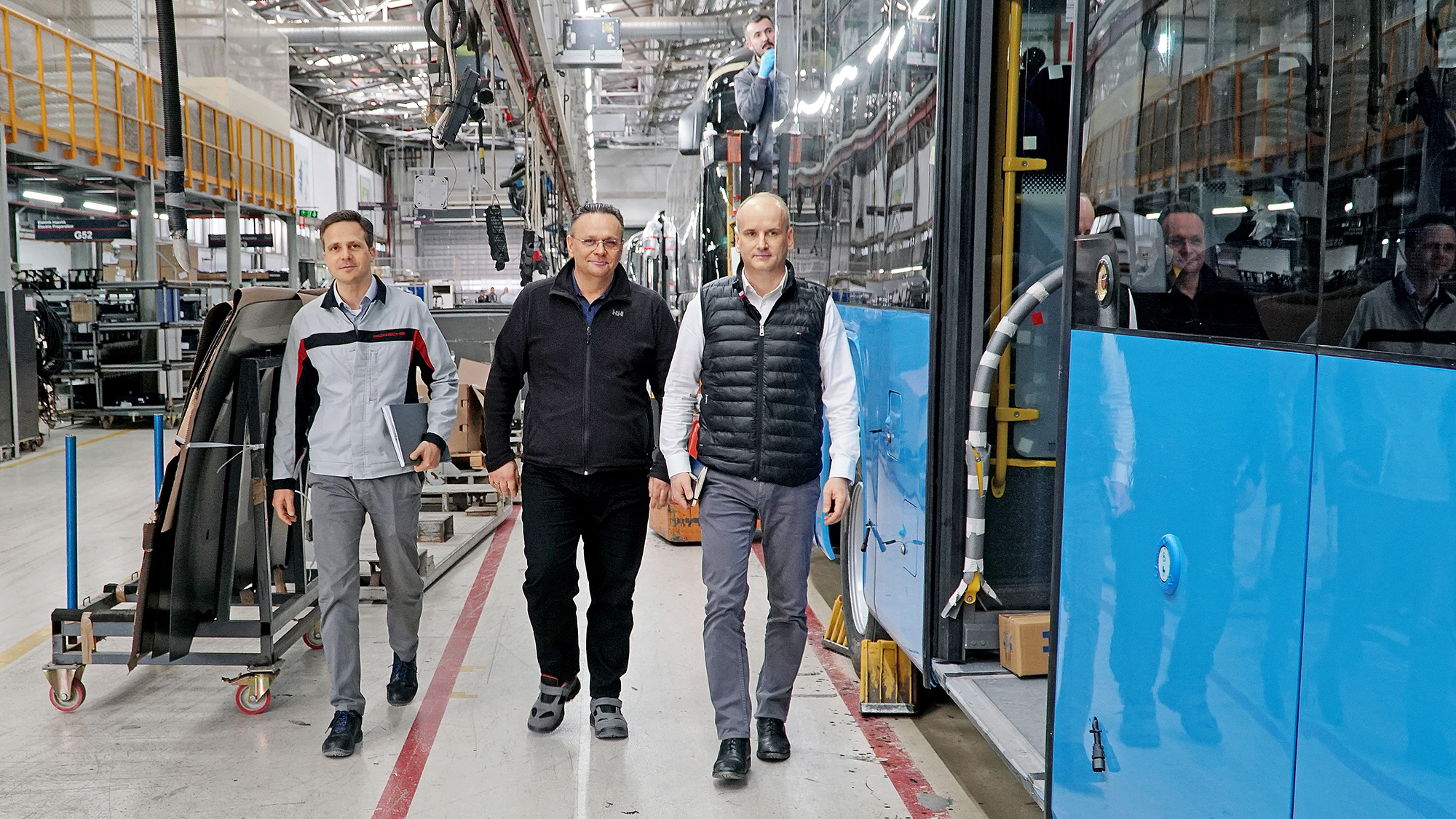
JIRA allows predictions
MAN in Ankara now uses the JIRA ticket system across the board to prevent errors – all anomalies are collected there. On the one hand, it provides the plant management with an up-to-date overview of the current status of each individual bus and how full the buffer stations for rework are. On the other hand, JIRA accelerates the resolution of quality issues in close cooperation with production and engineering. “The new ticket system provides us with up-to-date key performance indicators and also allows us to make predictions,” reports Kopiec, Head of Quality Bus. “We noticed the first positive effects after just eight weeks: The number of open tickets fell by almost a quarter and problems were resolved noticeably faster. This is also due to the fact that the flow of information between production and the quality department has improved significantly.”
The attitude of production employees towards their work has also changed. “Of course there are difficulties with every change,” says Sermet. “But as the project progressed, I saw more and more smiling faces among my colleagues. They were proud to report on their progress.” The CEO of MAN Türkiye A.Ş himself is also satisfied, as quality costs at the Ankara plant have fallen more than planned and, thanks to the newly anchored quality awareness, the MAN site is also well prepared for the challenges of the future. “Quality improvement is a continuous process, and after this successful first step, there will certainly be others to come,” summarizes Sermet. “But we are on the right track.”
Quality Needs Culture
